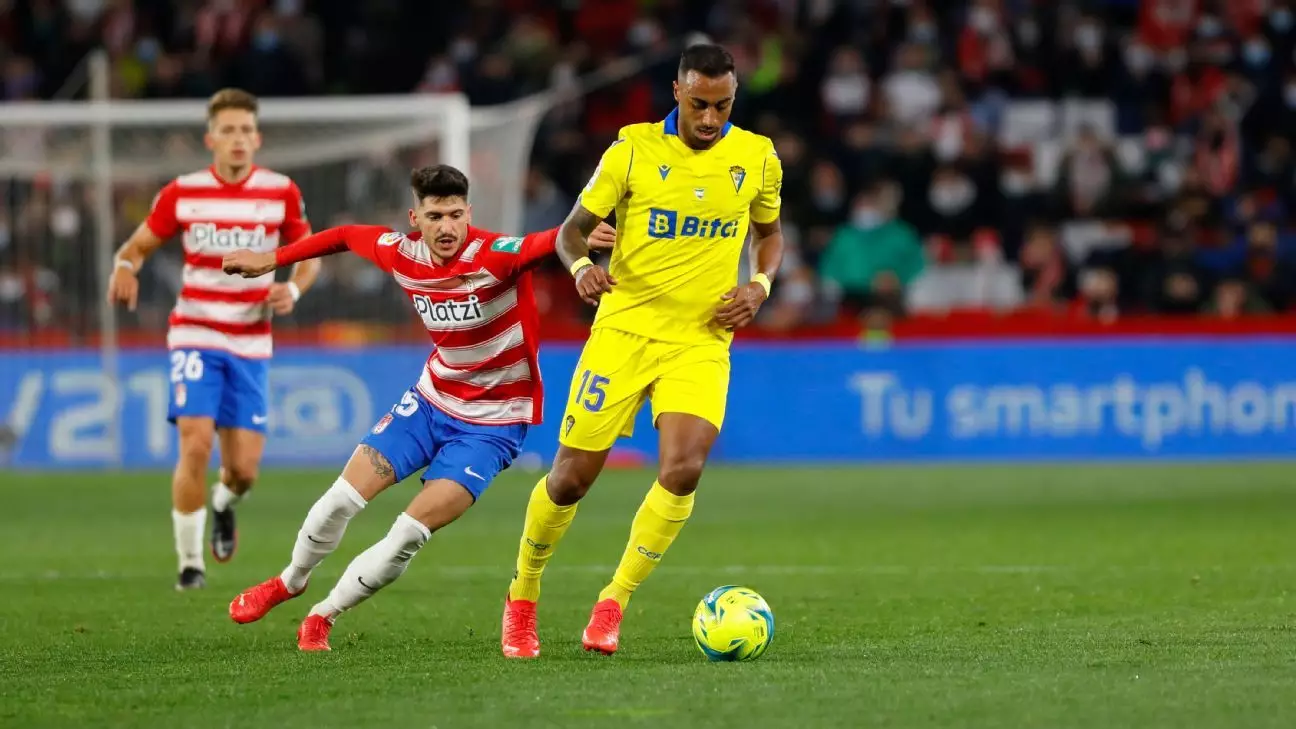Racism in football has long been a pressing issue, manifesting in various forms and leading to severe consequences both for players and the sport itself. A stark example of this issue was highlighted recently in a case involving Carlos Akapo, a former defender for the Cádiz CF, who faced racial abuse during a LaLiga match in 2022. The legal repercussions faced by the offender serve as a reminder of the ongoing battle against racism in the sport.
The Incident
In February 2022, during a LaLiga match between Granada and Cádiz, Carlos Akapo, a player of Equatorial Guinean descent, was subjected to stark racial abuse. The incident took place at the Nuevo Los Carmenes stadium, where a Granada fan was caught on camera making monkey gestures directed at Akapo. This reprehensible behavior prompted immediate condemnation from various stakeholders within the football community, including LaLiga, which took decisive action by reporting the incident to authorities.
Recently, a Spanish court delivered a one-year prison sentence to the supporter responsible for these racist actions, along with a 14-month ban from attending matches. This verdict, though significant, raises questions regarding its effectiveness and the implications for the future of similar cases. In Spain, prison sentences shorter than two years for non-violent crimes often do not lead to incarceration, leaving the offender free unless further crimes are committed. Thus, while the sentence may appear stringent, its practical enforcement might not lead to the deterrent effect needed to combat racism in football.
The response to the court’s decision has been mixed, reflecting the complexity of addressing racism not just as a legal issue but as a societal one. LaLiga welcomed the verdict, expressing that it signifies a critical milestone in their efforts to eradicate hate from football. By successfully prosecuting incidents of racism, the organization aims to send a clear message that such behavior will not be tolerated in football or any other aspect of society.
For Akapo, the ruling represents a step toward justice, something he visibly celebrated on social media. His current club, Amazonas FC, along with Cádiz CF, also voiced their satisfaction with the legal outcome, underscoring their commitment to promoting an inclusive and respectful environment. These endorsements remind fans and players alike of the values that sports should embody: integrity, equality, and respect.
The case of Carlos Akapo epitomizes the ongoing struggle against racism in football. While the legal system is taking steps to address such incidents, the fight is far from over. Continuous educational initiatives and stricter enforcement measures are essential to ensure that the sport can flourish free from discrimination. As the football community continues to grapple with these profound issues, the role of clubs, leagues, and advocates in promoting change cannot be overstated. Only through collective action can sports create a safe and inclusive environment for all players and fans, irrespective of their background.
